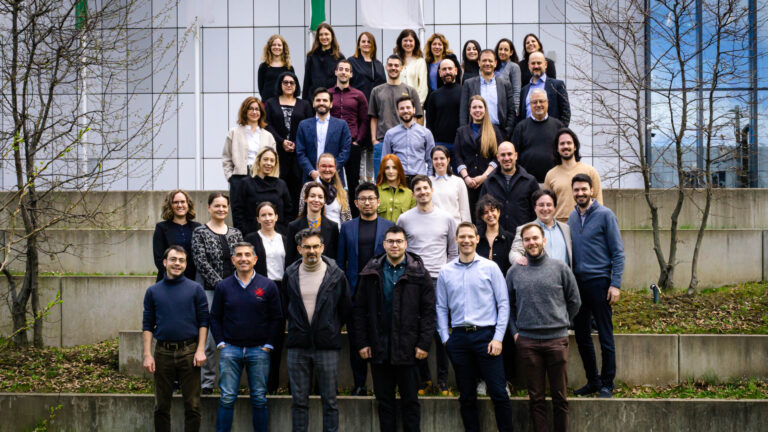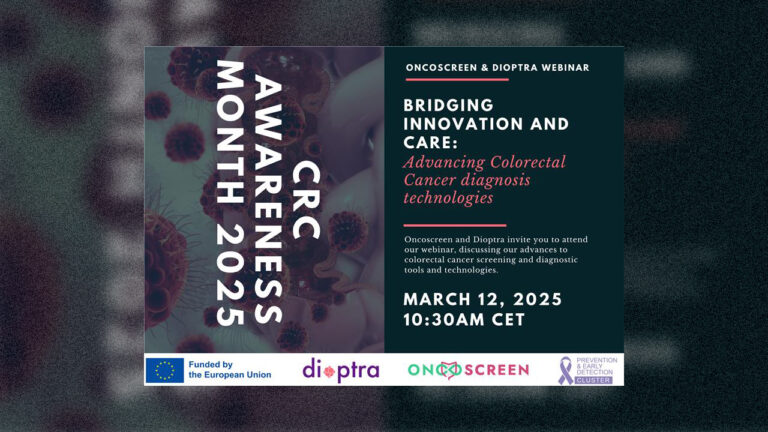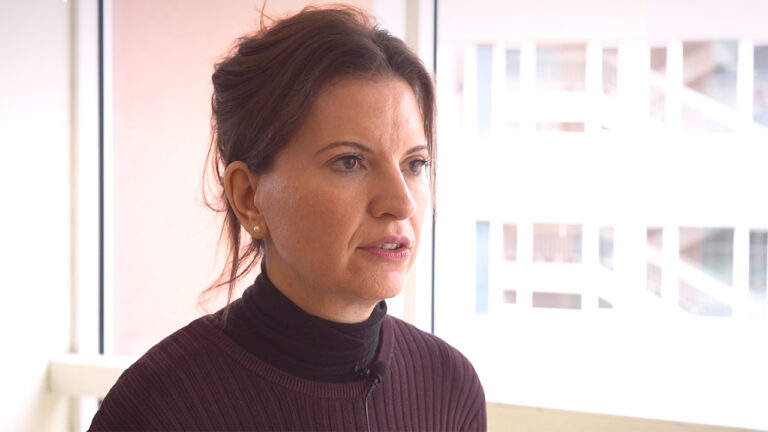The ‘Predictive Risk Factors for Colorectal Cancer in the DIOPTRA Retrospective Study’ is a groundbreaking research endeavour aimed at understanding the variables strongly correlated with Colorectal Cancer (CRC). Spanning 34 months and involving over 5000 subjects, the study aims to identify early CRC risk through the meticulous analysis of data, employing both statistical methods and advanced machine learning techniques. This comprehensive investigation not only highlights critical risk factors but also opens new avenues for personalized prevention strategies.
Today, we have the pleasure of sharing with you some scientific research currently underway in the DIOPTRA project. Our partners are engaged in an insightful retrospective study, primarily focused on understanding and accurately predicting the risk factors associated with the development of Colorectal Cancer (CRC).
Over a span of 34 months, the retrospective study will gather structured and anonymized data from more than 5000 subjects, ages 18-80, at eight clinical sites. The goal of this study is to generate a homogenized dataset to discover a panel of risk factors capable of predicting early CRC risk.
The premise of the DIOPTRA retrospective study
DIOPTRA hypothesis posits the existence of predictive variables or risk factors strongly correlated with the onset of CRC. The objective is to determine these risk factors and highlight their implications on early CRC susceptibility. The way this works is by carefully studying information taken from Electronic Health Records, employing advanced statistical analysis and state-of-the-art machine learning methodologies.
Objectives, design and methodology
The primary objective is to analyze all the risk factors and determine the most salient features for use in AI models predicting early CRC risk. The secondary objective involves the collection, formulation, curation, and harmonization of the retrospective DIOPTRA dataset.
The primary endpoint will reveal a panel of risk factors for early CRC risk, while the secondary endpoints will evaluate Machine/Deep Learning risk models based on their accuracy, precision, sensitivity, and specificity. It also aims to provide a homogenized retrospective DIOPTRA dataset and a solution for data curation and management.
This endeavour takes into consideration the gender distribution in the incidence of CRC, despite the reality that males are 25% more likely to develop the disease. Therefore, there will be more male study participants. Participants will be categorized into four groups: healthy individuals, non-advanced adenomas, advanced adenomas, and colorectal cancer stages I, II, and III. The study excludes individuals with significant comorbidity, recent major abdominal surgery, inflammatory bowel diseases, polyposis syndrome, pregnancy or suspicion of pregnancy, and a personal history of CRC.
Data collection and quality control
DIOPTRA project is committed to upholding the highest standards of data privacy and protection. Our data collection protocols are in strict compliance with Good Clinical Practice and GDPR regulations. Any deviations from the prescribed study protocol are meticulously documented and clarified. We conduct regular audits to maintain data integrity and ensure completeness. In scenarios where there are concerns related to patient privacy, legal or regulatory compliance, or external factors that could impede data access or retrieval, we have protocols in place for study suspension or early termination. This is to ensure that the study adheres to the highest ethical standards.
The significance of this study
This study transcends beyond merely collating data and statistics – it is about positively influencing lives. CRC poses a significant public health concern, and by comprehending the risk factors and their impacts on the disease, we stand a better chance at early detection and consequently, improved treatment outcomes. The potential implications of this work could revolutionize our understanding, prediction, and management of CRC.
This ambitious clinical investigation is a significant step forward in CRC research, as it paves the way for new strategies to predict and potentially prevent this form of cancer. In the following stages of DIOPTRA, the newly discovered risk factors will serve as a basis to develop personalized behavioural suggestions to lower one’s CRC risk.






